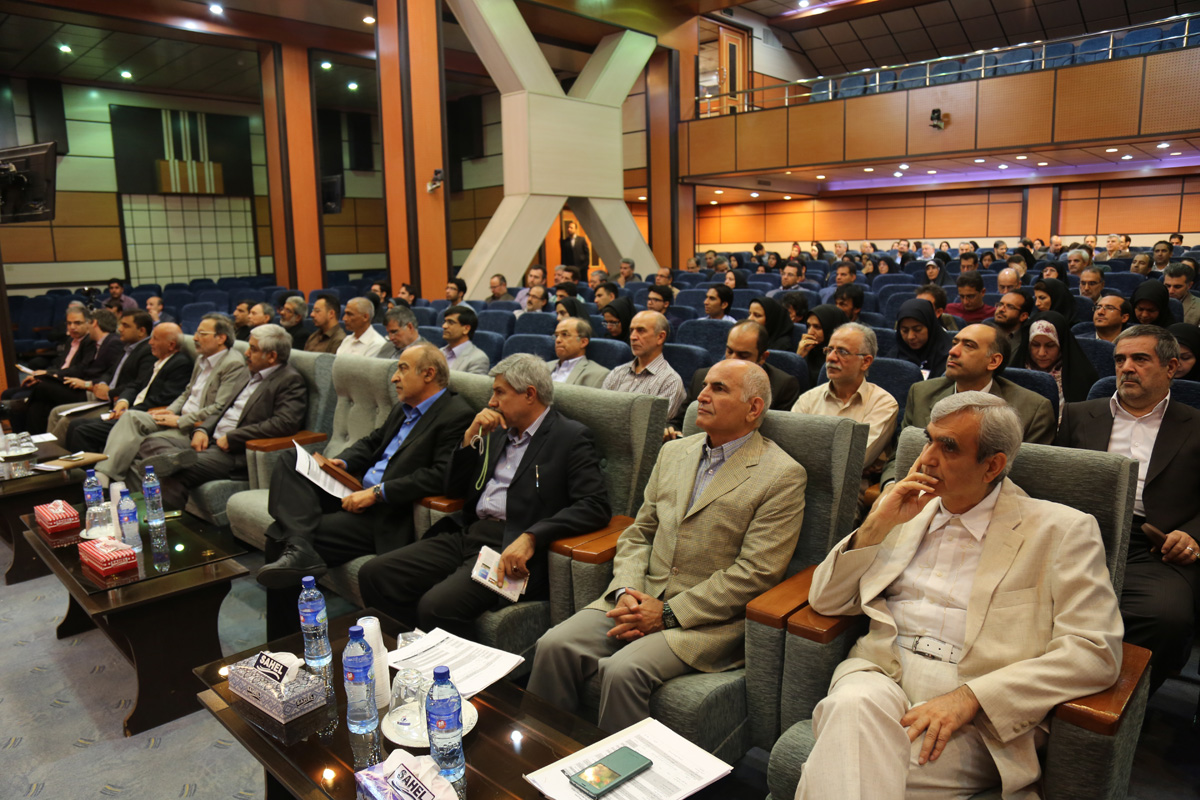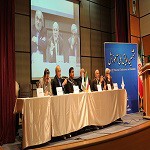The 8th National Conference on Education TVET
The 8th National Conference on Education Technical and Vocational Education and Training (TVET) and Sustainable Development
As reported by Public Relations Office of SRTTU, the 8th National Conference on Education was held in SRTTU on 25 and 26 May with the basic theme of “Technical and Vocational Education and Training and Sustainable Development”.
This conference is held annually in SRTTU with the aim of discussing educational issues of the country. This year the conference was held by highlighting the motto of the Iranian calendar “The Year of the Economy of Resistance: Action and Implementation” to address the problems and challenges of TVET in Iran.
In the conference opening, Dr. H. Azemati, the president of SRTTU, elaborated on the educational missions of the university as the only TVET higher education center in Iran. He stated that events like this conference can be a huge step taken in the path of gaining the goals and executing the plans of the university to develop the knowledge base of technical and vocational arena.
He also asserted that if educating labor force is not done appropriately, dynamic economy and competitive market cannot be reached. Fortifying TVET is one verified way to overcome economic downturn and create jobs nationwide. In the status quota of the country, resistance economy has been considered as an economic strategy by policy makers and administrators. This strategy is based on two strategic components: endogeneity and extroversion. The eondogeneiy component underscores domestic production, increasing efficiency, and people’s participation; while the extroversion component aims at increasing the country’s competition in international markets. In order to develop the economy of the country by seizing investment opportunities and overcoming sanctions from one side, and to prepare the ground for the development and utilizing the components of resistance economy to overcome overturn, control fluctuation, booming production, and the development of employment from another side, we need to pay more attention to the development of human labor force and attracting investment and economic development.
In continuation, Dr. M. Shams, the chair of the conference, presented a report on the number of articles submitted and the 2-day events of the conference. As he mentioned, from among 540 articles submitted, 154 articles were accepted, 50 for oral presentation and 104 for poster sessions. 60% of the articles have been submitted to the conference by researchers of more than 30 universities nationwide and 30% of the articles have been submitted by researchers of the offices of the ministry of education. More than 80% of the articles were directly related to the theme of the conference, TVET. “In spite of the specific theme of the conference, the quality of the articles is really good this year”, he said.
Then, Eng. Zarafshan, the deputy of secondary education, as the keynote speaker of the opening, explained about the challenges and opportunities of TVET and gave valuable statistics on this topic.
Then, Eng. M. H. Fallah, vice president of Iran Industry Confederation, addressed the issue of TVET from industry and marketing point of view and expressed craftsmen’s expectations of the ministry of education. He also talked about problems and possible solutions of this issue.
One of the highlights of this session was Dr. Majoomadar’s speech, the president of UNESCO-UNIVOC, in the format of a recorded video. In his speech, he discussed the importance of TVET for sustainable development, promoting welfare, and expanding technology in developing and under-developing countries. He also talked about the role of UNIVOC in organizing technical and vocational education across the world. He also mentioned that due to cultural, social and technological contexts, UNIVOC has formed clusters of neighboring countries for promoting and transferring capabilities and experiences from one country to another.
After this speech, Dr. Majjomadar’s representative, Dr. Zabir Shahid, expressed his views on TVET.
In the continuation, the accepted articles were presented in panel sessions and poster halls.





Leave a Reply
Want to join the discussion?Feel free to contribute!